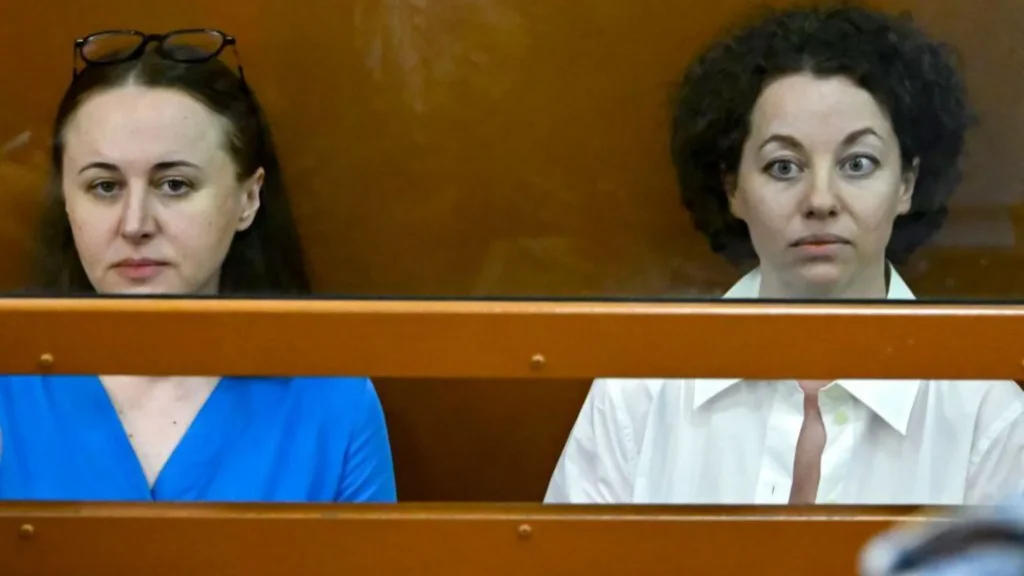Russian Playwright and Director Sentenced to Six Years for ‘Justifying Terrorism’ in IS Wives Play
In a controversial decision by a military court in Moscow, Russian playwright Svetlana Petrichuk and theatre director Yevgenia Berkovich have been found guilty of “justifying terrorism.” The court sentenced both women to six years in prison for their involvement in the production of the play “The Brave Falcon Finist,” which portrays the stories of Russian women who traveled to Syria to marry members of the Islamic State group.
The Play: The Brave Falcon Finist
“The Brave Falcon Finist,” loosely based on real events, dramatizes the experiences of Russian women who journeyed to Syria during the ongoing civil war to wed Islamic State fighters. The play sought to explore the complex motivations and circumstances surrounding these women’s decisions. Despite its artistic intent, the play has been interpreted by the authorities as an endorsement of terrorism, leading to the severe charges against its creators.
The Verdict and Sentencing
The court’s ruling has drawn widespread criticism and concern, particularly among Russia’s artistic and cultural communities. Director Yevgenia Berkovich and playwright Svetlana Petrichuk were each sentenced to six years in a penal colony. Additionally, the court imposed a three-year ban on both women from administering websites following their release. This decision highlights the extent of the penalties and the government’s stance on perceived threats to national security.
Legal and Public Reactions
The defence lawyer for Berkovich and Petrichuk has vowed to appeal the verdict, emphasizing the broader implications for freedom of expression in Russia. The trial, which was held partly behind closed doors, has intensified fears among artists and intellectuals about the increasing restrictions on creative freedoms and the punitive measures taken against those who challenge official narratives.
Implications for Freedom of Expression
The sentencing of Berkovich and Petrichuk is seen as part of a broader crackdown on dissent and free expression in Russia. This case has alarmed many in the cultural sector, who view it as a warning to artists and playwrights about the potential repercussions of addressing sensitive or controversial topics. The international community and human rights organizations have also expressed concern, calling for greater protections for artistic freedom and the right to free expression.
Serving Their Sentences
According to Russian news agency RBC, Berkovich and Petrichuk, who have been in custody since May 2023, will now be transferred to a penal colony to serve their sentences. This development underscores the harsh reality faced by those who fall afoul of Russia’s strict anti-terrorism laws, particularly in the context of artistic and cultural productions.
Conclusion
The conviction and sentencing of Yevgenia Berkovich and Svetlana Petrichuk mark a significant and troubling episode in Russia’s ongoing struggle with freedom of expression. Their play, “The Brave Falcon Finist,” intended to shed light on a complex and controversial subject, has instead become a flashpoint for debates about the limits of artistic freedom and the state’s role in regulating cultural discourse. As their defence prepares to appeal, the case will continue to be closely watched, both within Russia and internationally, for its implications on the rights of artists and the broader issue of free expression in increasingly restrictive environments.

